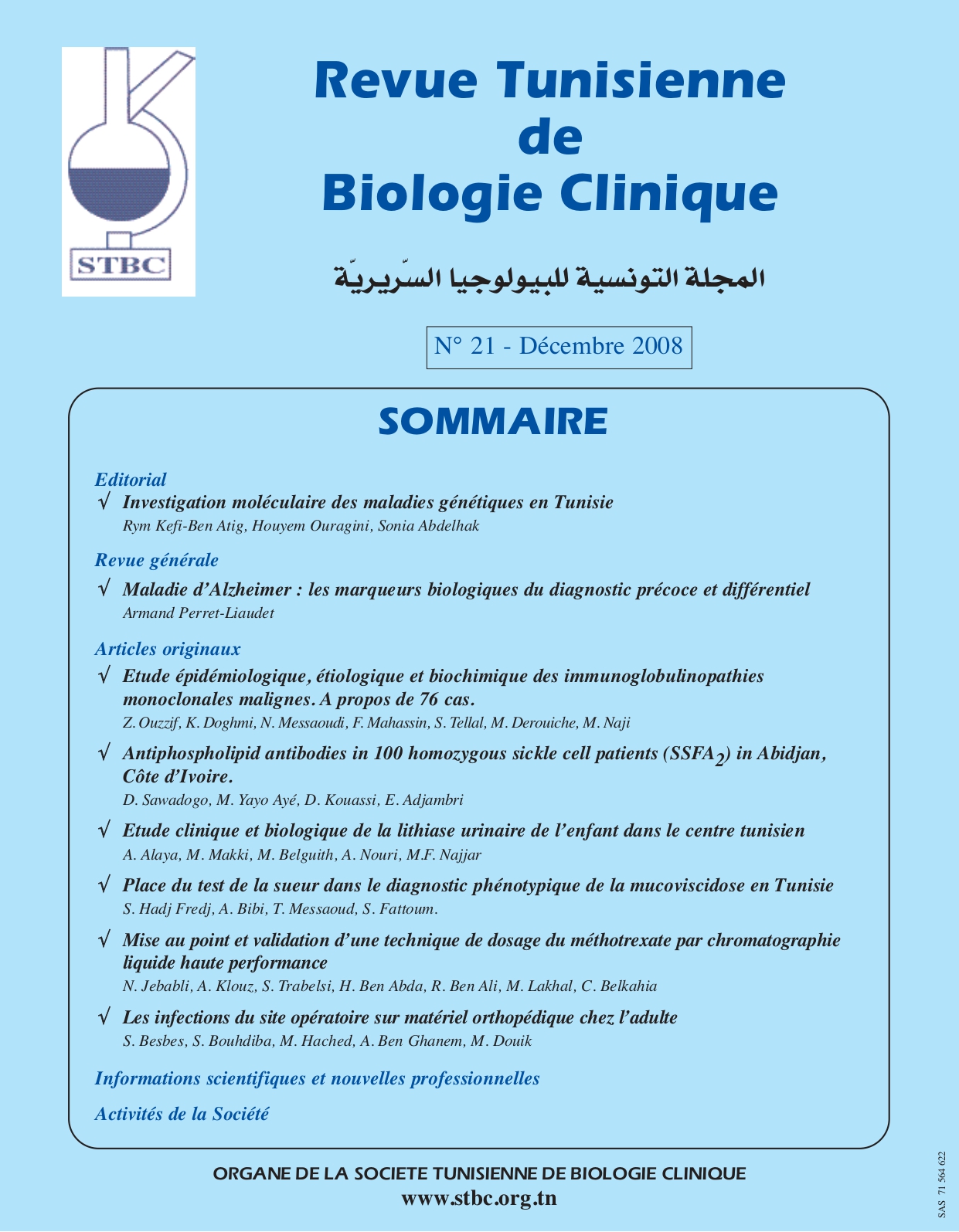Abstract
The monoclonal immunoglobulines are defined by selective secretion, often in high, of only one molecular species of immunoglobuline serum and/or urinary, testifying to the not controlled expansion of a single clone of B lymphocytes (lymphoplasmocyte or plasmocyte). Within the framework of this work, we wanted to study the epidemiologic, biochemical and etiologic characteristics of a troop of 76 cases of malignant monoclonal immunoglobulinopathy (MMI) in the Rabat military hospital in Morocco. The Monoclonal Gammopathies of Undeterminated Signification will be of this fact excluded from our matter. It is about a retrospective study relating to the cases of MMI studied at the laboratory of biochemistry of Mohammed V Military Hospital lasting the 8 years period and half, from September, first 1997 to March 31 2006. The results of this study are in majority comparable with those of the literature. They confirm that : the MMI are pathologies of the old subject with a male prevalence, - The absence of monoclonal peak in the protein electrophoresis should not inevitably make draw aside the diagnosis of MMI: a free light chain in small quantity can be detected only in urines. Prevalence of isotypic IgG/k (54, 5%) on its counterparts in the multiple myeloma, the most frequent pathology in the MMI. - The weak frequency of the Waldenström macroglobulinemia (7,9%). Compared to the majority of the great international series, it is characterized by : - The frequency relatively high of the MMI with free light chain (27,3%).

This work is licensed under a Creative Commons Attribution 4.0 International License.
Copyright (c) 2024 Revue Tunisienne de BIOLOGIE CLINIQUE

